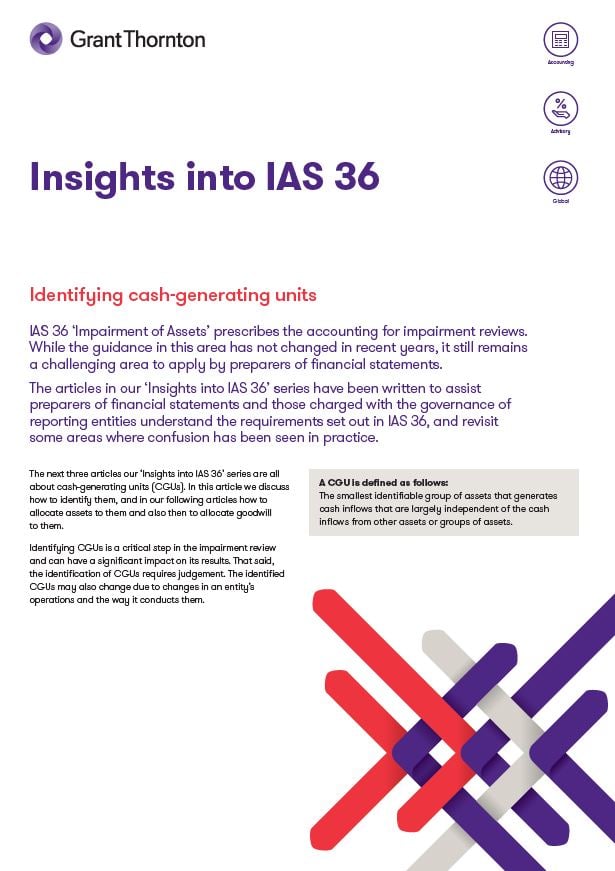IAS 36 ‘Impairment of Assets’ prescribes the accounting for impairment reviews. While the guidance in this area has not changed in recent years, it still remains a challenging area to apply by preparers of financial statements.
The articles in our ‘Insights into IAS 36’ series have been written to assist preparers of financial statements and those charged with the governance of reporting entities understand the requirements set out in IAS 36, and revisit some areas where confusion has been seen in practice.
The next three articles our ‘Insights into IAS 36’ series are all about cash-generating units (CGUs). In this article we discuss how to identify them, and in our following articles how to allocate assets to them and also then to allocate goodwill to them.
Identifying CGUs is a critical step in the impairment review and can have a significant impact on its results. That said, the identification of CGUs requires judgement. The identified CGUs may also change due to changes in an entity’s operations and the way it conducts them.


